History Courses > 20th Century
History
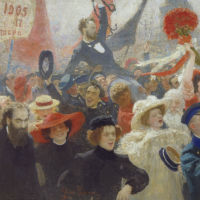
Course • History • 5 lectures
Russia – The End of Imperial Russia, 1894-1917
Prof. Peter Waldron, University of East Anglia 5 Lessons
5 Lessons
History
Russia – The End of Imperial Russia, 1894-1917
Prof. Peter WaldronUniversity of East Anglia
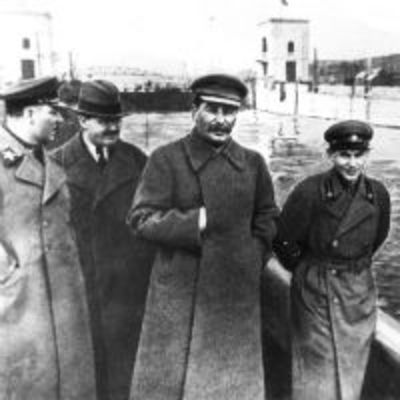
Course • History • 7 lectures
Russia – The Great Terror, 1936-38
Prof. James Harris, Leeds University 7 Lessons
7 Lessons
History
Russia – The Great Terror, 1936-38
Prof. James HarrisLeeds University
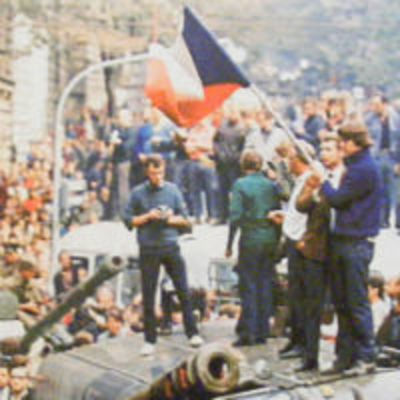
Course • History • 4 lectures
Russia – The Prague Spring, 1968
Prof. Kevin McDermott, Sheffield Hallam University 4 Lessons
4 Lessons
History
Russia – The Prague Spring, 1968
Prof. Kevin McDermottSheffield Hallam University
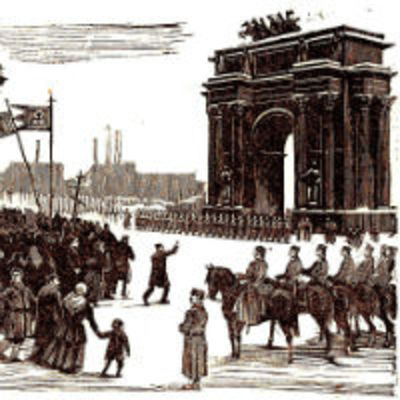
Course • History • 5 lectures
Russia – The Revolution of 1905
Dr Jonathan Smele, QMUL 5 Lessons
5 Lessons
History
Russia – The Revolution of 1905
Dr Jonathan SmeleQMUL
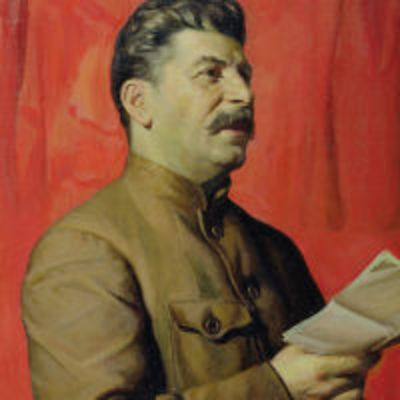
Course • History • 7 lectures
Russia – The Rise and Reign of Stalin, 1878-1938
Prof. Christopher Read, Warwick University 7 Lessons
7 Lessons
History
Russia – The Rise and Reign of Stalin, 1878-1938
Prof. Christopher ReadWarwick University

Course • History • 5 lectures
Russia – The Rule of Khrushchev, 1953-64
Dr Miriam Dobson, Sheffield University 5 Lessons
5 Lessons
History
Russia – The Rule of Khrushchev, 1953-64
Dr Miriam DobsonSheffield University
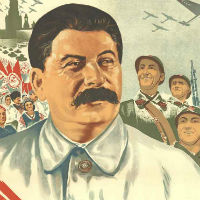
Course • History • 6 lectures
Russia – The Rule of Stalin, 1922-41
Dr Arfon Rees, Birmingham University 6 Lessons
6 Lessons
History
Russia – The Rule of Stalin, 1922-41
Dr Arfon ReesBirmingham University
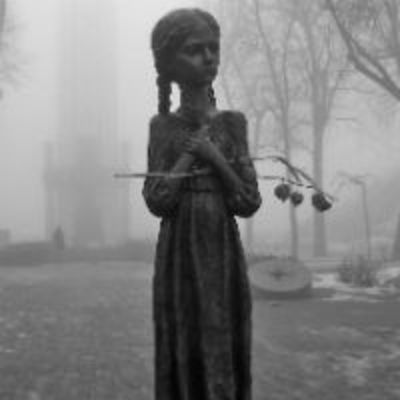
Course • History • 6 lectures
Russia – The Ukrainian Famine, 1932-33
Dr Mark Levene, Southampton University 6 Lessons
6 Lessons
History
Russia – The Ukrainian Famine, 1932-33
Dr Mark LeveneSouthampton University
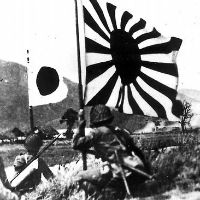
Course • History • 6 lectures
The USA and Japan, 1941-52
Dr Christopher Harding, Edinburgh University 6 Lessons
6 Lessons
History
The USA and Japan, 1941-52
Dr Christopher HardingEdinburgh University
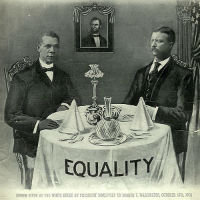
Course • History • 6 lectures
US History – Civil Rights, 1865-1941
Prof. Robert Cook, Sussex University 6 Lessons
6 Lessons
History
US History – Civil Rights, 1865-1941
Prof. Robert CookSussex University
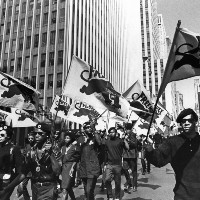
Course • History • 6 lectures
US History – The Black Panther Party, 1966-82
Dr Joe Street, Northumbria University 6 Lessons
6 Lessons
History
US History – The Black Panther Party, 1966-82
Dr Joe StreetNorthumbria University
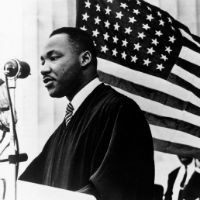
Course • History • 6 lectures
US History – The Civil Rights Movement, 1945-70
Dr Tom Davies, Sussex University 6 Lessons
6 Lessons
History
US History – The Civil Rights Movement, 1945-70
Dr Tom DaviesSussex University
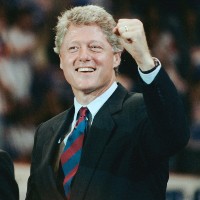
Course • History • 5 lectures
US History – The Presidency of Bill Clinton, 1993-2001
Prof. Mark White, QMUL 5 Lessons
5 Lessons
History
US History – The Presidency of Bill Clinton, 1993-2001
Prof. Mark WhiteQMUL
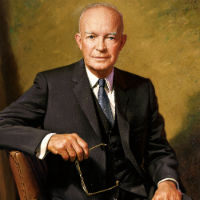
Course • History • 5 lectures
US History – The Presidency of Dwight Eisenhower, 1953-61
Prof. Mark White, QMUL 5 Lessons
5 Lessons
History
US History – The Presidency of Dwight Eisenhower, 1953-61
Prof. Mark WhiteQMUL
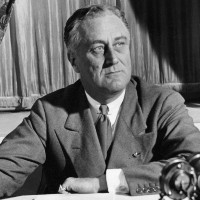
Course • History • 5 lectures
US History – The Presidency of Franklin D. Roosevelt, 1933-45
Prof. Iwan Morgan, UCL 5 Lessons
5 Lessons
History
US History – The Presidency of Franklin D. Roosevelt, 1933-45
Prof. Iwan MorganUCL
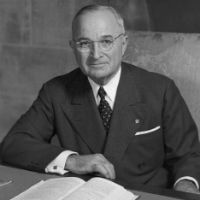
Course • History • 5 lectures
US History – The Presidency of Harry Truman, 1945-53
Prof. Mark White, QMUL 5 Lessons
5 Lessons
History
US History – The Presidency of Harry Truman, 1945-53
Prof. Mark WhiteQMUL
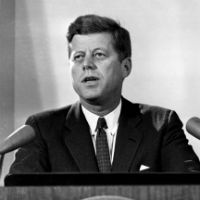
Course • History • 11 lectures
US History – The Presidency of John F. Kennedy, 1961-63
Prof. Mark White, QMUL 11 Lessons
11 Lessons
History
US History – The Presidency of John F. Kennedy, 1961-63
Prof. Mark WhiteQMUL
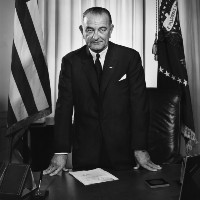
Course • History • 5 lectures
US History – The Presidency of Lyndon B. Johnson, 1963-69
Prof. Mark White, QMUL 5 Lessons
5 Lessons
History
US History – The Presidency of Lyndon B. Johnson, 1963-69
Prof. Mark WhiteQMUL
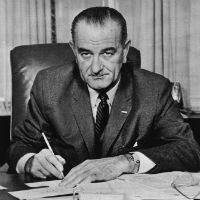
Course • History • 6 lectures
US History – The Presidency of Lyndon B. Johnson, 1963-69
Dr Thomas Tunstall Allcock, Manchester University 6 Lessons
6 Lessons
History
US History – The Presidency of Lyndon B. Johnson, 1963-69
Dr Thomas Tunstall AllcockManchester University
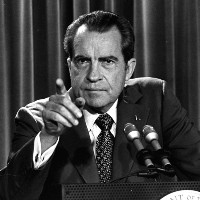
Course • History • 5 lectures
US History – The Presidency of Richard Nixon, 1969-74
Dr Kevin Yuill, Sunderland University 5 Lessons
5 Lessons
History
US History – The Presidency of Richard Nixon, 1969-74
Dr Kevin YuillSunderland University
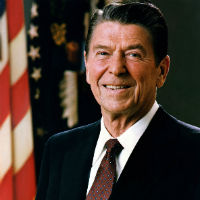
Course • History • 6 lectures
US History – The Presidency of Ronald Reagan, 1981-89
Dr James Cooper, York St John University 6 Lessons
6 Lessons
History
US History – The Presidency of Ronald Reagan, 1981-89
Dr James CooperYork St John University
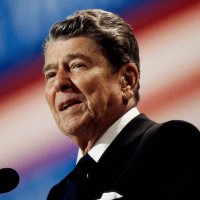
Course • History • 5 lectures
US History – The Presidency of Ronald Reagan, 1981-89
Prof. Iwan Morgan, UCL 5 Lessons
5 Lessons
History
US History – The Presidency of Ronald Reagan, 1981-89
Prof. Iwan MorganUCL
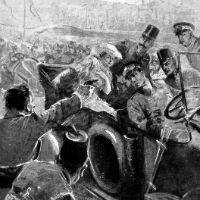
Course • History • 6 lectures
World War I – Causes and Origins, 1815-1914
Dr Sascha Auerbach, Nottingham University 6 Lessons
6 Lessons
History
World War I – Causes and Origins, 1815-1914
Dr Sascha AuerbachNottingham University
